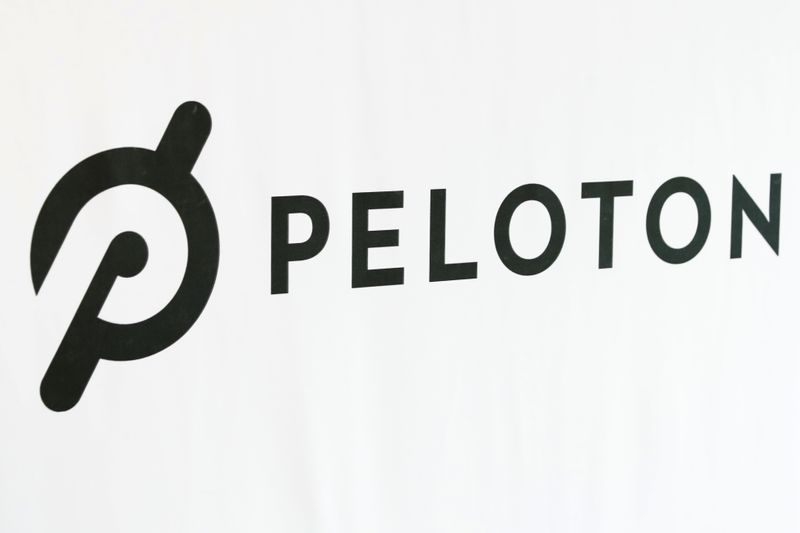These are top 10 stocks traded on the Robinhood UK platform in July
On Tuesday, Macquarie initiated coverage on Peloton Interactive, Inc. (NASDAQ:PTON) with a positive outlook, assigning an Outperform rating and setting a new price target of $10.00. Currently trading at $6.64, the stock sits between its 52-week range of $2.83 to $10.89. The coverage transfer to analyst Marni Lysaght from Paul Golding comes after Peloton’s third-quarter results, which showcased the company’s effective cost management and debt reduction strategies. According to InvestingPro data, Peloton’s overall financial health score stands at 2.14, indicating fair condition despite market challenges.
Peloton’s third-quarter revenue reached $624 million, hitting the high end of its guidance range between $605 million and $625 million. With a market capitalization of $2.65 billion, the company faces headwinds as InvestingPro analysis shows a 6.36% revenue decline over the last twelve months. This performance aligns with consensus estimates and slightly exceeds Macquarie’s own expectations. The company also surpassed its guidance for ending paid subscriptions, reporting 2.88 million subscribers against the forecasted range of 2.85 to 2.87 million. Churn improved, dropping by 20 basis points quarter-over-quarter to 1.2%.
The fitness company’s gross margin saw a significant increase of 370 basis points quarter-over-quarter to 51%, surpassing the 50% guidance by 100 basis points. Adjusted EBITDA for the quarter was $89.4 million, beating both the company’s guidance of $70 to $85 million and consensus estimates. This marks the fifth consecutive quarter of positive adjusted EBITDA and free cash flow for Peloton, with free cash flow reaching $94.7 million, well above Macquarie’s projection of $54.8 million. The company’s EV/EBITDA multiple of 245x suggests a premium valuation compared to peers.
Looking ahead, Peloton has raised its financial outlook, tightening its revenue forecast to a range of $2,455 million to $2,470 million, from the previous $2,430 million to $2,480 million. Adjusted EBITDA expectations have also been narrowed to between $330 million and $350 million, and the company anticipates approximately $250 million in free cash flow, an improvement from the prior estimate of $200 million. With a beta of 2.26, the stock exhibits significant volatility compared to the broader market. These projections include the impact of current tariffs on Peloton and Precor equipment, as well as the anticipated $5 million hit in the fourth quarter. For deeper insights into Peloton’s financial outlook and comprehensive analysis, check out the detailed Pro Research Report available on InvestingPro.
Peloton remains on track to achieve $200 million in cost savings by the end of 2025 and foresees sustained free cash flow generation into 2026. The company anticipates the working capital benefits realized in 2025 will persist, albeit to a lesser degree. Despite some consumer softness observed in April and the traditionally slower summer season, the guidance suggests a roughly 24% increase in fourth-quarter EBITDA at the midpoint.
The company’s resilience is partly attributed to its higher-income user base, which may be less affected by economic downturns, as evidenced during the 2008-2009 period. Additionally, Peloton’s introduction of budget-friendly options, including refurbished products, could further bolster its performance. The company maintains healthy liquidity with a current ratio of 1.65, indicating sufficient resources to meet short-term obligations.
In other recent news, Peloton Interactive reported its third-quarter financial results for 2025, showing a mixed performance. The company posted a larger-than-expected loss per share of -$0.12, missing the forecasted -$0.07. However, revenue slightly exceeded expectations, reaching $624 million compared to the anticipated $623.03 million. Despite these mixed results, Peloton raised its full-year guidance for paid subscriptions, indicating a positive outlook for subscriber growth. Analysts from Telsey Advisory Group responded by lowering their price target for Peloton from $9.00 to $8.00, while maintaining a Market Perform rating due to concerns about subscriber trends and consumer spending on high-priced items.
Peloton’s adjusted EBITDA improved significantly, marking five consecutive quarters of positive results, and the company reported $95 million in free cash flow. The company is focusing on expanding its subscription base and enhancing member experiences through strategic initiatives under new CEO Peter Stern (AS:PBHP). These efforts include leveraging AI for personalized coaching and improving service offerings. Despite the challenges in its Connected Fitness products segment, Peloton’s subscription model showed resilience, contributing $419 million to the total revenue.
This article was generated with the support of AI and reviewed by an editor. For more information see our T&C.
